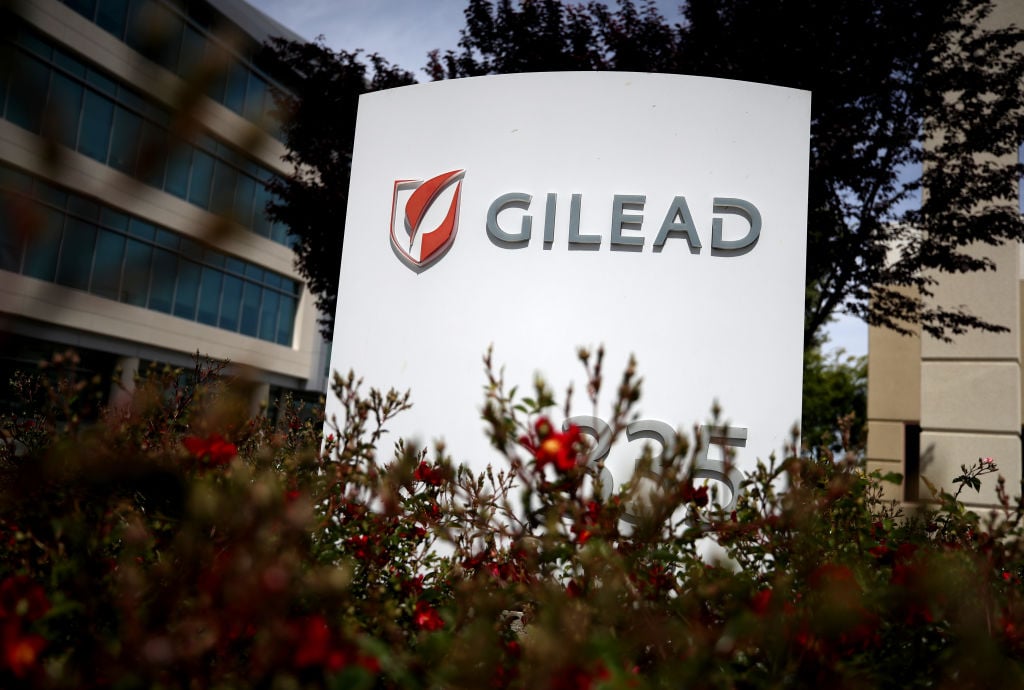Greetings, BioPharmaPulse Readers!
Cancer continues to be one of the most formidable challenges of our time, touching countless lives across the globe. Yet, amidst the struggle, innovative therapies are emerging, offering new hope. In today's issue, we delve into groundbreaking developments that could reshape cancer treatment and the future of drug discovery.
What's in this issue:
- 🧬 Discover how CAR-T cell therapies are evolving in the fight against cancer.
- 🔥 Uncover promising data on novel immunotherapy combinations.
- 🤖 Learn how AI is accelerating drug discovery processes.
- 💡 Explore strategic shifts impacting key biopharma players.
Quote of the Day
"Innovation is the unrelenting drive to break the status quo and develop anew where few have dared to go." – Steven Jeffes
Latest Developments
🧬 Gilead's CAR-T Sales Stagnate as Trodelvy Takes Another Impairment Hit (3 minute read)

Rundown: Gilead Sciences is facing challenges with its CAR-T therapies, Yescarta and Tecartus, as sales have plateaued due to increased competition in the market. While these therapies marked significant advancements in cancer treatment, the company is now shifting focus to other areas amidst these hurdles.
Key Points
- 📉 Stagnant Sales: Yescarta and Tecartus have seen flat sales, signaling market saturation and competition.
- 💰 Strategic Shift: Gilead is redirecting efforts toward its HIV portfolio and new therapeutic areas.
- 🔬 Continued Potential: Despite challenges, CAR-T therapies remain a beacon of hope for patients with certain cancers.
Why it matters: CAR-T cell therapies represent a revolutionary approach in oncology, harnessing the patient's immune system to fight cancer. Understanding market dynamics helps stakeholders anticipate the evolution of these life-saving treatments.
🔥 Arcus Backs TIGIT Combo by Offering Glimpse at Positive Data from Axed Trial (2 minute read)

Rundown: Arcus Biosciences has revealed encouraging data from a discontinued Phase 3 trial combining TIGIT and PD-1 inhibitors in lung cancer. The positive signals support the company's plans to pursue this immunotherapy combo in new clinical settings.
Key Points
- 🧪 Promising Efficacy: The drug combo showed potential in enhancing anti-tumor responses.
- 🛑 Trial Termination: Original study halted for strategic reasons, not due to safety concerns.
- 🎯 Future Plans: Arcus aims to explore the combination in alternative cancer indications.
Why it matters: Immunotherapy combinations are at the forefront of cancer research. Success in this arena could lead to more effective treatments for patients with difficult-to-treat cancers.
🤖 Elsevier Backs Pistoia Alliance for AI in Drug Discovery (1 minute read)

Rundown: Elsevier has partnered with The Pistoia Alliance to foster safe and responsible AI adoption in drug discovery. The collaboration focuses on overcoming challenges like data trustworthiness and AI transparency to accelerate innovation in the pharmaceutical industry.
Key Points
- 🤝 Strategic Partnership: Aims to equip over 200 member organizations with AI expertise.
- 🛠️ Key Focus Areas: Trustworthy data, data structuring, and unified governance frameworks.
- 🌐 Industry Impact: Supports ethical AI use to revolutionize drug development processes.
Why it matters: AI holds transformative potential for drug discovery, offering quicker, more efficient pathways to develop new therapies. Collaborative efforts ensure that advancements are made responsibly and effectively.
Question of the Day
🧠 How do you think AI will impact the future of drug discovery?
Trending
💡 Joe Jimenez's Latest Aditum Company Lines Up T Cell Engager from China
- Aditum Bio launches Oblenio Bio to develop a novel T cell engager targeting autoimmune diseases, in collaboration with a Chinese biotech.
🔬 Denali Teases Early Data for Enzyme Replacement Therapy in Rare Disease
- Denali Therapeutics shares promising topline data on DNL126, an enzyme replacement therapy for Sanfilippo syndrome.
Industry Insight
🧪 The Promise of CAR-T Cell Therapies in Cancer Treatment
CAR-T cell therapies have emerged as a groundbreaking approach in oncology, offering new hope to patients with certain types of cancer. By genetically modifying a patient's own T cells to recognize and attack cancer cells, these therapies harness the power of the immune system.
While challenges such as manufacturing complexities, high costs, and side effects exist, ongoing research aims to overcome these hurdles. Advances in CAR-T technology may lead to more accessible treatments, expanded indications, and improved patient outcomes in the future.
Quick Hits
⚡️ ADC Therapeutics Axes Lead Solid Tumor Drug After Phase 1 Setback (1 minute read)
- ADC Therapeutics discontinues its lead solid tumor program following disappointing Phase 1 results, refocusing on preclinical assets.
🚫 FDA Seeks to Pull OTC Nasal Decongestant Ingredient Due to Lack of Efficacy (1 minute read)
- The FDA proposes removing phenylephrine from over-the-counter cold medications, citing ineffectiveness as a nasal decongestant.
💰 Geron’s Royalty Deal; Minghui’s New VEGF Bispecific Data (1 minute read)
- Geron secures up to $375 million in a royalty and debt deal with Royalty Pharma; Minghui releases encouraging data on a new VEGF bispecific antibody.
📝 Genmab Chops Early Cancer Prospects to Prioritize Phase 3 Projects (1 minute read)
- Genmab discontinues three early-stage oncology programs to focus resources on pivotal late-stage projects.
Wrap Up
Thank you for joining me in exploring the cutting-edge advancements shaping the future of cancer treatment and drug discovery. The progress in CAR-T therapies and the integration of AI into our industry underscores the relentless pursuit of innovation. Each step forward brings us closer to transforming patient lives and overcoming the challenges that lie ahead.
Stay inquisitive and keep the pulse of innovation alive!
Warm regards,
Elliot Reeves
BioPharmaPulse
😊 How did you like today's email?
- 😍 Loved it
- 🙂 It was OK
- 😕 Could be better
